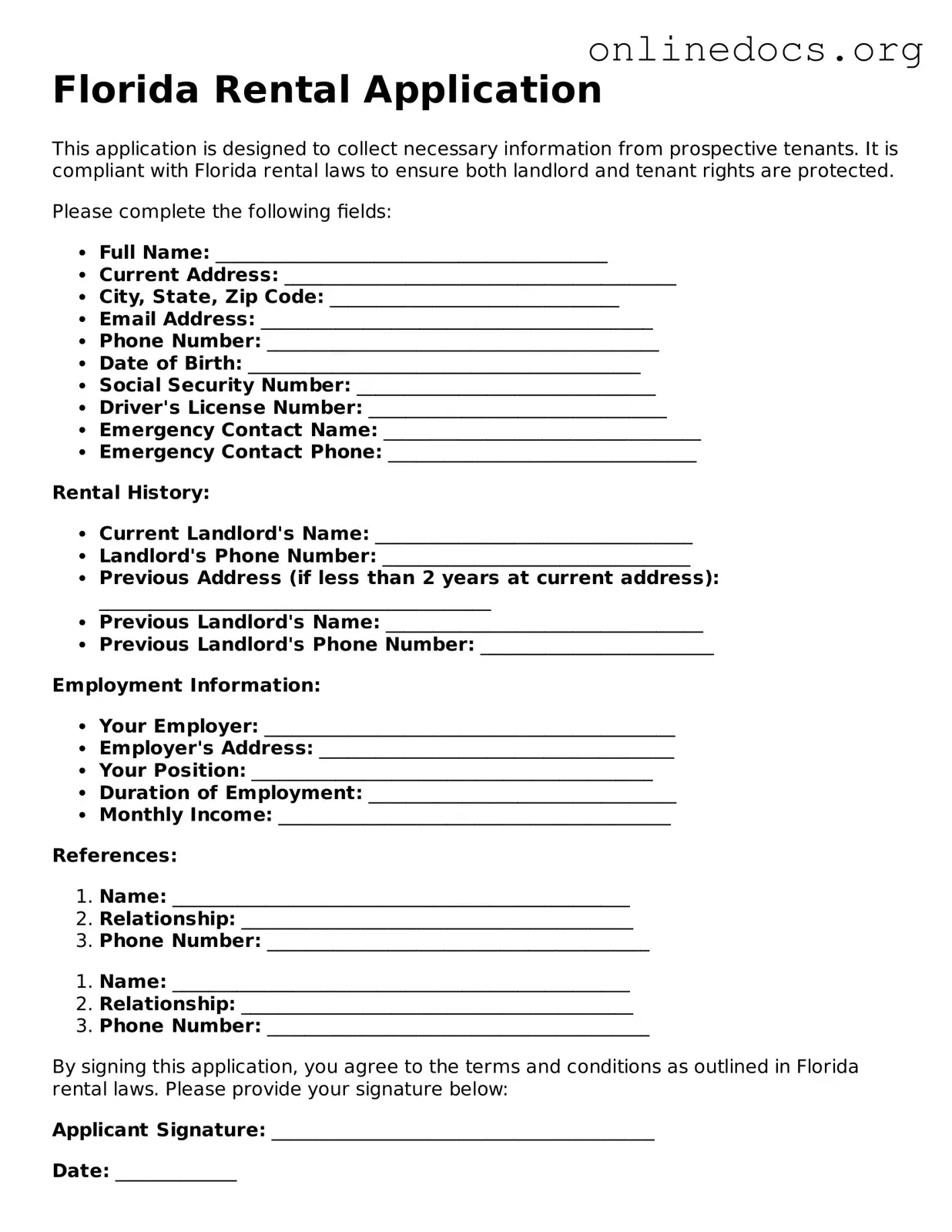When filling out a Florida rental application, many individuals overlook important details that could impact their chances of securing a rental property. One common mistake is providing incomplete information. Omitting essential details such as employment history or income can raise red flags for landlords. It’s crucial to ensure that every section of the application is filled out completely and accurately.
Another frequent error is failing to check for spelling and grammatical mistakes. A rental application is often the first impression a landlord has of a potential tenant. Errors in spelling or grammar can make an applicant appear careless or unprofessional. Taking the time to proofread can significantly enhance the application’s presentation.
Some applicants underestimate the importance of providing accurate references. Listing outdated or incorrect contacts can hinder the verification process. Landlords rely on references to gauge an applicant’s reliability and character. It’s advisable to choose references who can speak positively about your rental history and character.
Additionally, many people neglect to include necessary documentation. Landlords often require proof of income, identification, or previous rental agreements. Failing to attach these documents can lead to delays or even rejection of the application. Ensure all required paperwork is included to streamline the process.
Another mistake is not being honest about rental history. Some applicants may be tempted to omit negative rental experiences. However, honesty is crucial, as landlords may conduct background checks. Discrepancies between the application and background findings can result in disqualification.
Lastly, applicants often overlook the significance of the application fee. Many landlords charge a non-refundable fee to process applications. Failing to submit this payment can result in an application being dismissed outright. Always check the fee amount and ensure it is submitted promptly to avoid complications.
